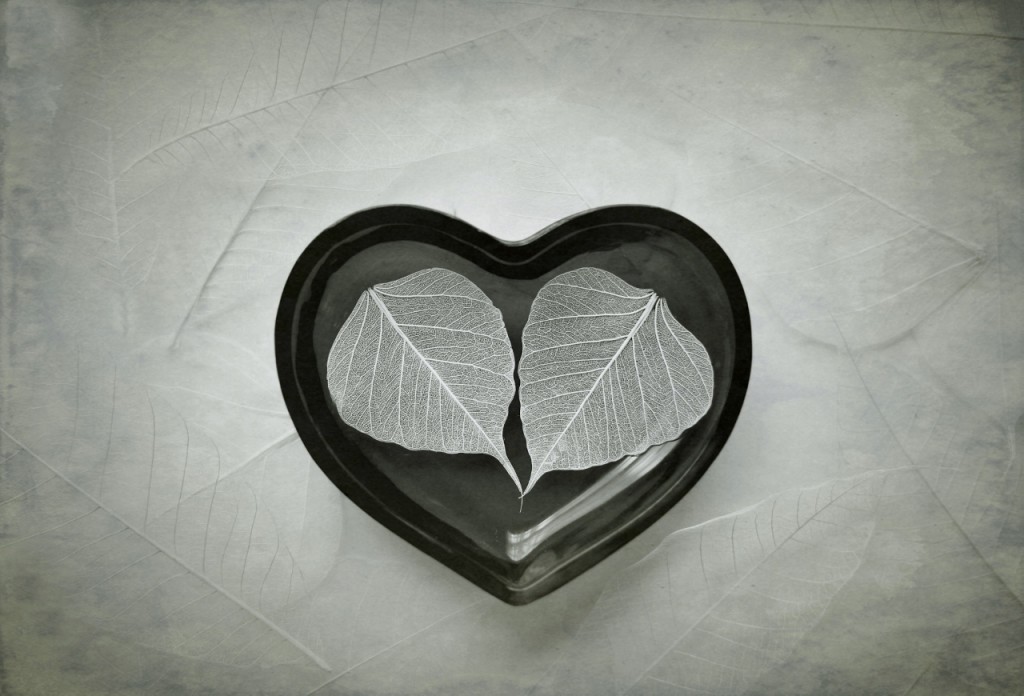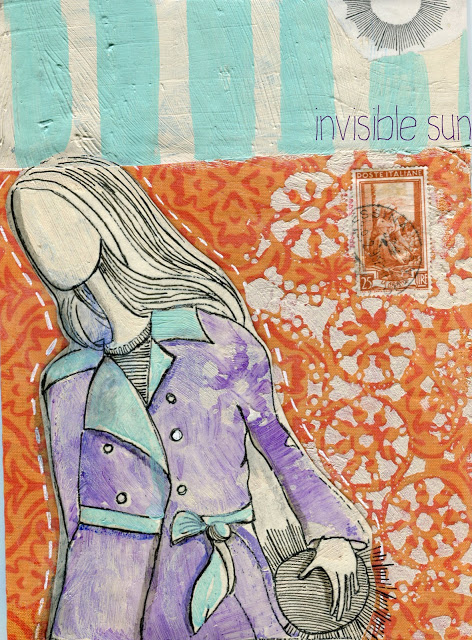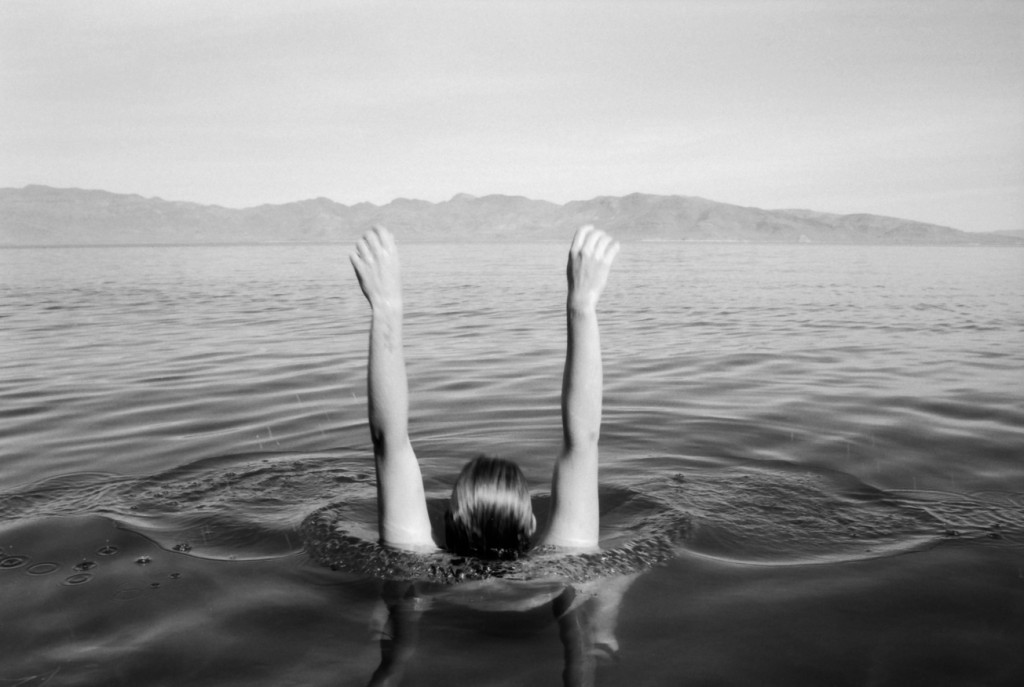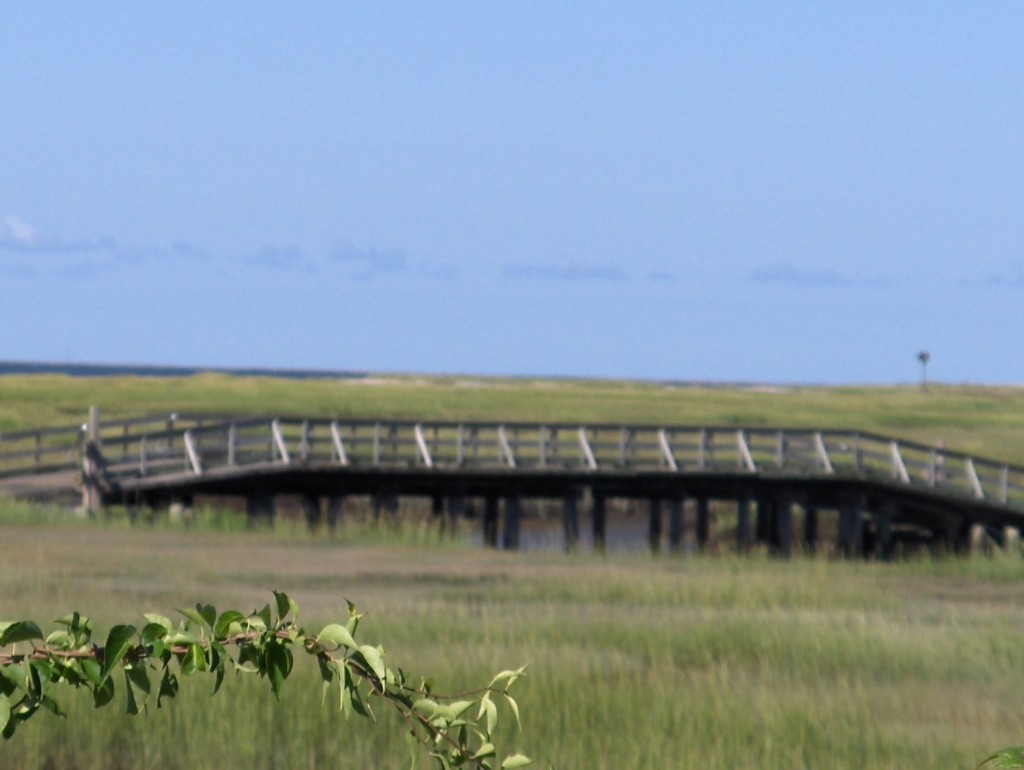
By Zachary Zane
I don’t typically go out to bars alone. In fact, I never do. But I’m in Provincetown; I’m cute, tall, and twenty-three. I should have no problems making friends. Or at least that’s what I’ve been told.
After spending some time with my uncles at the P’town Theater, I head directly over to A-House. I walk in and immediately beeline it to the bar. Head on a swivel, I look around, hoping that my smile will be enough to bring people over to me. It does not. I stand next to the bar, only to notice how salient my sobriety feels. I order a Jack and Diet. I notice no one. No one notices me. Chug my drink. Order another. I notice him.
Cut jaw, blue eyes, big lips, scruff. Tight dark jeans cuffed at the bottom. Perfect bubble butt. Black low-laced boots. Light blue button down shirt. Untucked. Top three buttons undone. Humble chest hair. Tattoos everywhere. Backwards hat. Short blond hair underneath. Feather earring. Necklace. Rings. Bracelets.
He’s alone at the other side of the bar. I see him laugh as he talks to the bartender. The music is blaring, but somehow I can still hear him. He opens his mouth wide as he laughs. A real heartfelt laugh. His teeth are white and straight. His tongue, pierced.
I stare. I stare for a long time. He does not notice. I finish my drink and order another. Liquid courage begins pulsing through my veins. He moves to the dance floor. So do I.
I walk up to him.
I love your earring.
Thanks.
We introduce ourselves.
Wanna step outside to talk? I smile and nod. That is exactly what I want.
Do you smoke?
No, I don’t.
Good you shouldn’t. He takes out a cigarette and lights up.
We talk. About places. Where we have lived. Where we will live. Why we’re here. Me, visiting my uncles for the long weekend. Him, for the summer, but moving to Crown Heights shortly.
He’s confident and honest. Comfortable in his own skin. Maybe that’s the difference between being twenty-three and twenty-seven. The difference between my age and his.
His honesty is not abrasive. Not too soon. With anyone else it would be. He grew up in foster homes and left home when he was fifteen. He is the first person in his family to go to college. He created his own major there. Social Entrepreneurism. He was in India for work, helping impoverished children with cancer. Related to a startup he headed. Almost too clichéd. Almost. He comes home to find his husband of four years gone. Picked up and left. It led to a downward spiral of alcohol, drug use, and sex. Mistrust. With himself and others. I can’t blame him.
You’re cute.
Thank you. I would return the compliment, but he is much more than cute. Calling him cute would be insulting.
He recognizes a friend and calls him over. He starts talking to him and introduces us. His friend has a friend. That friend starts flirting with me, while his friend talks to him. The friend of a friend is drunk but kind. I don’t listen to him as he speaks. I eavesdrop. He acts the same with his friend. Confident. Charismatic. The four of us reconvene.
You two are too cute. Do you guys plan on having sex tonight?
He looks at me and smiles. Well, I hope… if—
I look at him. I really hope so.
We smile at each other. Naughty smiles.
A-House is closing. I grab my jacket and take a leak.
I can’t find him when I come out of the bathroom. Minutes go by. God damn it.
He comes up behind me and grabs my hand.
I’ve been looking for you.
I’ve been looking for you, too.
I stare into his blue eyes. They’re intoxicating. His whole face, intoxicating. High cheekbones. Full lips. A subtle rosy completion. We head back to his place. On the way he whips out a pair of prescriptionless hipster glasses and a slingshot.
Please tell me you’ve been carrying around this slingshot with you for the past ten years.
I wish. I got it today at a yard sale.
Why did you ruin the illusion?
Here, look how much fun it is.
He helps me grip the base.
I shoot at a sign.
See! Isn’t it fun?
I smile. Yeah. It really is.
He pulls back the slingshot and cuts his lip. It bleeds. Good. I was beginning to suspect he wasn’t real.
He pulls down the bottom of his lip to show me.
How did you do that?
I don’t even know.
I lean in to kiss it. He pushes me away. I start to worry and stop myself. He’s just waiting. This isn’t the moment. We head back to his place. It’s nice. Really nice. He made friends with a rich man who doesn’t charge him rent. He offers me a beer. I take one. He does too.
Hi.
He’s looking into my eyes. I meet his gaze. No blinking. No smile. He breaks eye contact first to blush.
Sorry, you’re just really cute, and I get awkward.
If anyone else had said that to me, I would have known he was playing me. A game. I trust him. I believe him. He’s nervous. Human. Real.
Don’t be. His eyes lock with mine again. We stare. At the same time we both lean in to kiss. A slow, soft kiss. His lips are slightly chapped, but I don’t mind—again, reminding me that he’s human. I inhale deeply as I close my eyes. He smells of man. No deodorant. It’s a short kiss. Little tongue. He breaks away first.
Wanna head to my bedroom?
I do.
I use the bathroom before heading in. His pants are already off. He wears boxer briefs. Hanes. Nothing flashy. But they fit in all the right places. I take off my boots and jeans. Boxer briefs. Champion. Nothing flashy. He offers me a bedtime shirt. I decline. I know I’m going to take it off shortly.
He keeps the lights on. I like that. We begin kissing. Slowly. I open my eyes to see his closed. To see him losing himself. Losing himself in me. I close my eyes and feel him. Toned. All hair and muscle. Six-foot-one and one-hundred-eighty-five pounds of man.
We get naked, but don’t have sex. We don’t need to. It’s incredible to be with someone my size. His weight on me. His body against me. Holding one another. He falls asleep in my arms. Snoring. I don’t mind. I like hearing him.
The next morning we wake up. Naked. We make out. Cuddle. Feel one another. We lounge around. Still naked. Talking. About work. Family. Friends. Provincetown. Lovers. Past and present.
Do you have boyfriend?
No. I don’t. Do you?
No. There is this guy I talk to in D.C. But no, I don’t. You’d be surprised how many times I ask that and the answer is yes. Why don’t you have a boyfriend?
I’m not sure what to say. I just don’t. Men are new to me. At least dating men. I tell him the truth.
I was faux-dating this guy for many months. I broke things off with him recently. I knew he was perfect for me. I just wasn’t attracted to him physically. I hate myself for it. I know physical attraction is important, but I can’t help but feel shallow when that’s the only reason. I tried forcing it for a while, but that didn’t work.
Yeah, you can never force something like that.
I know that now. The whole thing was so frustrating.
I’ve been there, too. We all have. Doesn’t make you a bad person. You just know what you need now.
I do.
He looks into my eyes again. How do I feel so vulnerable and yet so comfortable? He smiles and gives me a big kiss.
When do you leave?
I’m not sure. I need to head back to my uncles later today, and I’m leaving in the afternoon.
It’s a shame. This always happens. Where I meet someone right before I am leaving for some place new. I like you. I could see myself really liking you and enjoying the process of getting to know you.
I know. I have nothing more to say. I agree.
Well I can be your twenty-four-hour boyfriend.
I would like that.
He kisses me, and we cuddle in various positions. Still naked.
He shows me cute pictures of himself in drag. I try on jeans he throws at me. They fit surprisingly well.
I think I’m gonna steal these.
Don’t you dare! We’ll grab you a pair today in town.
We hop in the shower together. Kiss. Scrub each other. We hop out. I put on my clothing from last night. He puts on something new. Cute. Hip. Tight shirt. Short sleeves. Jeans. Faux boat shoes.
We get brunch. He knows the owner and the waitress by name. It’s incredible seeing him interact. You would think that he’s best friends with everyone. He invites both of them over later to help him make applesauce with all the fallen apples in his yard. He had invited me earlier, but I told him I wouldn’t be around for it. It’s clear he’s never hung out with them before. But he’s happy to invite them over. To meet new people. Experience new friendships.
Eggs Benedict and gluten-free peach and pineapple pancakes.
Do you like ketchup?
Yeah.
Do you like pepper?
Yeah. I like everything.
That’s good. You’re a yes guy. I like that. I could never be with anyone who isn’t a yes guy.
He leans over the table and grabs my arms. I look into his eyes. He kisses me, moving his hand slowly down my jaw. He puts his leg on me as we eat. I pet it throughout brunch.
We split the bill and walk into town.
So you have the one tattoo?
Yeah.
Why just the one?
I got it with my best friend in college. I know it’s silly, but I like it. I’d be happy to get another one; I just don’t know what it would be. I wouldn’t want it to be a joke tattoo like this one. I would want it to mean something. At this point in my life, I don’t think I’ve accomplished anything, or simply lived enough to get another tattoo that means something.
That’s not true at all. Of course you have lived. Just in the short time I have spent with you and from the little you’ve told me. Of course you have lived. Don’t put yourself down like that.
I don’t mean to put myself down, I just … I don’t know.
You’re twenty-four?
Twenty-three.
I know you’re probably thinking that you should have your masters and be able to suck fifty dicks at the same time, but—
Well, I mean, I can.
He laughs. I know you can, but in all honesty, think about it like this. Think about all the things you can teach people. Every little thing from the very small to the very big. I bet you would have a really long list.
Yeah, I guess I would.
A professor once told me that. I like to think about it from time to time.
Yeah. I like that. It’s trite. It’s cliché. It’s something that can be put on an inspirational poster. I know all this. But when he says it, it means something. When he says it, I feel better. I believe him.
We walk into a boutique. He asks the owner, a friend who he lived with previously, if they have jeans my size. They do, but not in a cut he thinks will fit me well. We shop together. Try on hats and glasses. He buys a cute sweater.
We walk down Commercial together. Holding hands. He picks his long board up from a friend’s house.
Have you ever ridden one?
No.
Do you wanna try?
Sure.
He steadies me as I hop on the board. His hands on my waist. He’s got me. I know I won’t fall. He helps me kick off, and I ride a little bit. He pulls my hand so I can actually pick up some speed. I hop off.
The walk back to my uncles is about two miles. We talk more. We hold hands. We stop in the street to kiss periodically. He tells me how he got expelled from high school. He beat up a kid who called him a faggot. I like hearing stories like these. People who stand up for themselves.
I don’t know what it is. If it’s just that I know you’re leaving, and I won’t ever see you again, or see you again like this, or if it’s really something more. But I can see myself with you.
I know. I feel the same way. And honestly, I don’t know. It might be both. I shouldn’t have said it—admitting that it may not be real, but I did.
Yeah.
We reach my uncles’ place. He gives me a kiss. A long, real kiss.
Text me. Or don’t.
I know how he means it.
I will.
I’m really glad you came up to me at the bar.
Yeah, and to think I was about to leave right before meeting you.
I’m glad you didn’t.
Me too.
I kiss him again. I don’t want him to go.
Bye.
Bye.
He hops on his long board and rides away. I want to cry. Not tears of joy. Not tears of sadness. Tears of emotion. Raw emotion. What just happened?
Provincetown is already a surreal fantasyland where time stops. Where I feel far away from the city. Where everyone is friendly and queer. In my fantasyland, I met my dream boy.
I didn’t love him. I know that. But it was more than lust. What happened was ineffable. I felt connected, as if I had known him for years. I let myself go to him. I didn’t hold back, knowing there was nothing to lose.
Maybe I’m just a sucker for blue eyes and a pretty smile. Even though this was the first time something like this happened to me, I know it wasn’t the first time it happened to him. His personality, his whole being, lends himself to love and be loved. To real connections. And I’m sure he’s had real connections, just like this one, before. But that doesn’t matter. For twenty-four hours, I was his, and he was mine. All mine.
I don’t know if I’ll see him again. Of course, I could. I’m in New York once every few months anyway, but there is a part of me that wants to keep this a fantasy. To keep this perfect. The moment I see him again, outside of Provincetown, he becomes real. Our relationship, or whatever it was, will be real. Not this perfect dreamlike fantasy. And I won’t be able to think of him as fondly as I do right now.
Still, I have to see him again. Even if it ruins it. Normalizes it. Realizes it. If he made me feel so much in twenty-four hours, imagine what more he can make me feel. Odds are it won’t work out, but it’s a risk I have to take.
•••
ZACHARY ZANE is a Los Angeles native who got lost and somehow ended up living in Boston. He’s a freelance writer and contributor at PRIDE. When he’s not trying to get his book published, he spends his time pondering about relationships and sexuality. You can follow him on Twitter @ ZacharyZane_

 Follow
Follow


